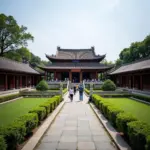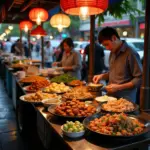Finding the right place to sever unwanted love attachments can be a significant step towards emotional healing and new beginnings. Hanoi, with its rich spiritual heritage and serene temples, offers unique opportunities for those seeking such closure. This article explores the cultural and spiritual significance of cutting love ties and guides you through finding the perfect place in Hanoi for this important personal journey.
Understanding the Significance of Cutting Love Ties
In Vietnamese culture, severing ties with a past love is not just about moving on emotionally; it often involves a spiritual aspect. This practice, often referred to as “cắt tiền duyên” (cutting karmic ties), is believed to help release negative energy associated with past relationships, allowing individuals to heal and open themselves to new opportunities. This is not about harboring ill will, but rather about finding peace and moving forward. It’s a way of acknowledging the past and consciously choosing to detach from its emotional baggage. 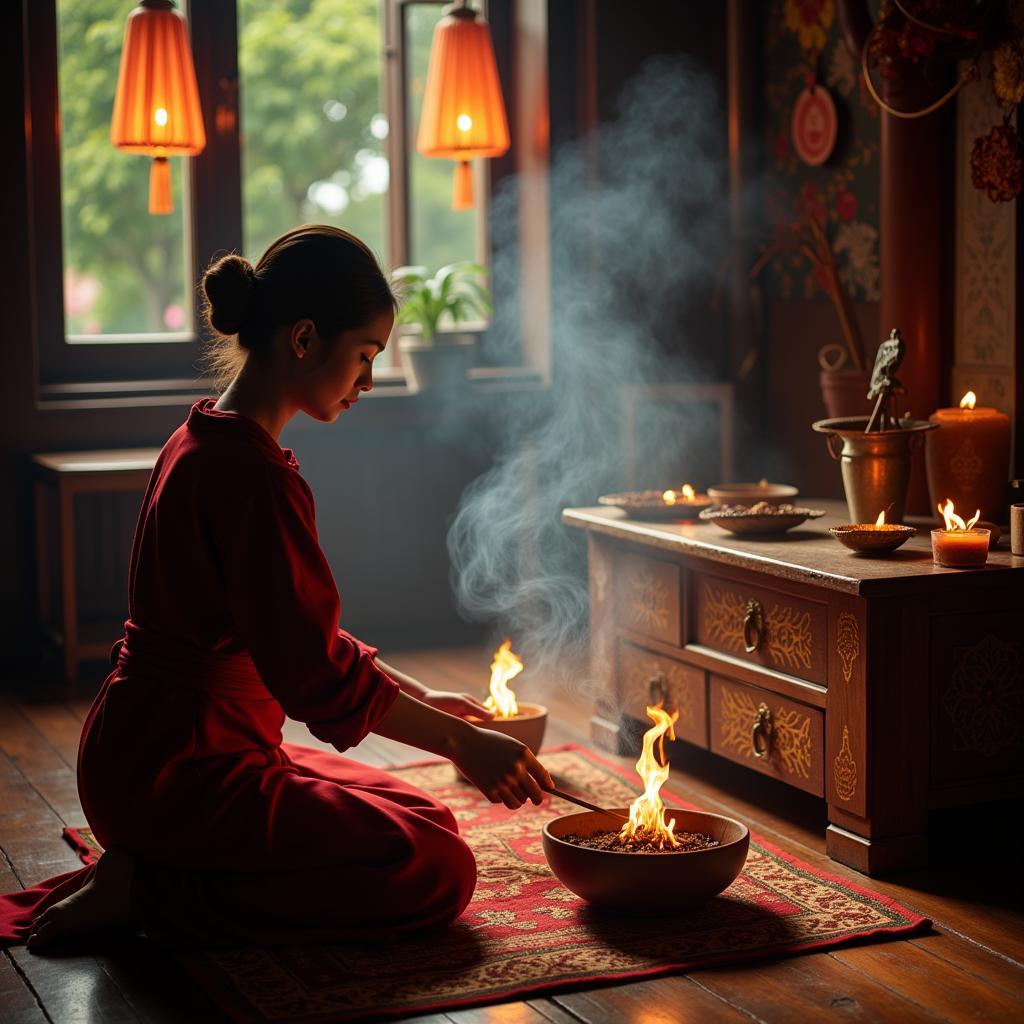 Cutting Love Ties Ceremony at a Hanoi Temple
Cutting Love Ties Ceremony at a Hanoi Temple
Exploring Hanoi’s Spiritual Landscape for “Cắt Tiền Duyên”
Hanoi’s spiritual landscape is dotted with ancient temples and pagodas, each with its own unique energy and history. Some are particularly revered for their association with love and relationships, making them ideal locations for seeking closure. 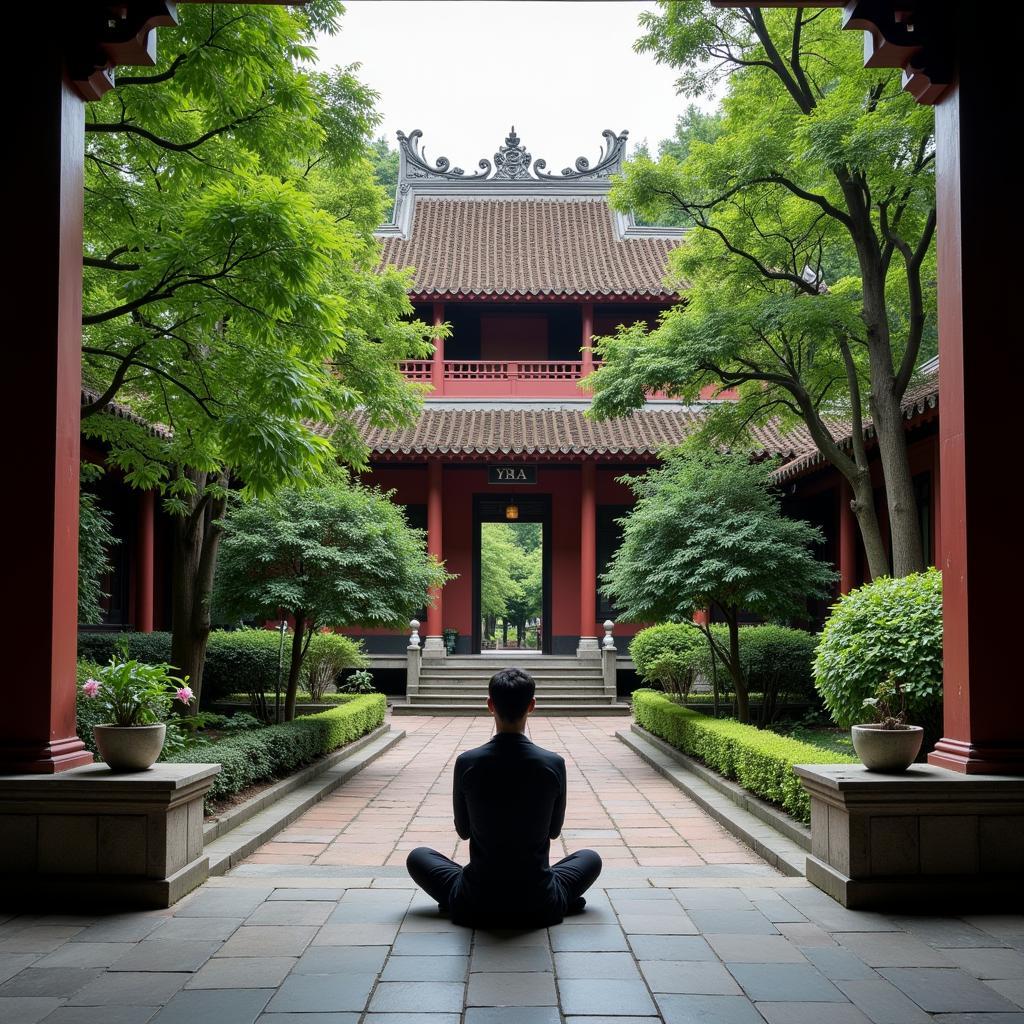 Prayer and Reflection at a Hanoi Temple
Prayer and Reflection at a Hanoi Temple
Popular Temples for Severing Love Ties
Several temples in Hanoi are popular destinations for individuals seeking to cut love ties. These include:
- Phủ Tây Hồ: This temple, dedicated to the Mother Goddess Liễu Hành, is renowned for its power to grant wishes and resolve relationship issues.
- Đền Quán Thánh: This Taoist temple, one of the Four Sacred Temples of Hanoi, is known for its peaceful atmosphere and focus on spiritual growth.
- Chùa Hương: This pilgrimage site, located just outside of Hanoi, offers a serene natural setting for reflection and spiritual cleansing.
Each temple has its own unique rituals and customs. It’s important to research and choose a location that resonates with you personally.
The Process of “Cắt Tiền Duyên”
While the specifics may vary depending on the location and individual beliefs, the general process of “cắt tiền duyên” involves prayer, offerings, and sometimes the burning of symbolic items. It’s a deeply personal experience and often accompanied by a sense of release and renewed hope. It is important to approach the process with sincerity and respect for the spiritual traditions involved. 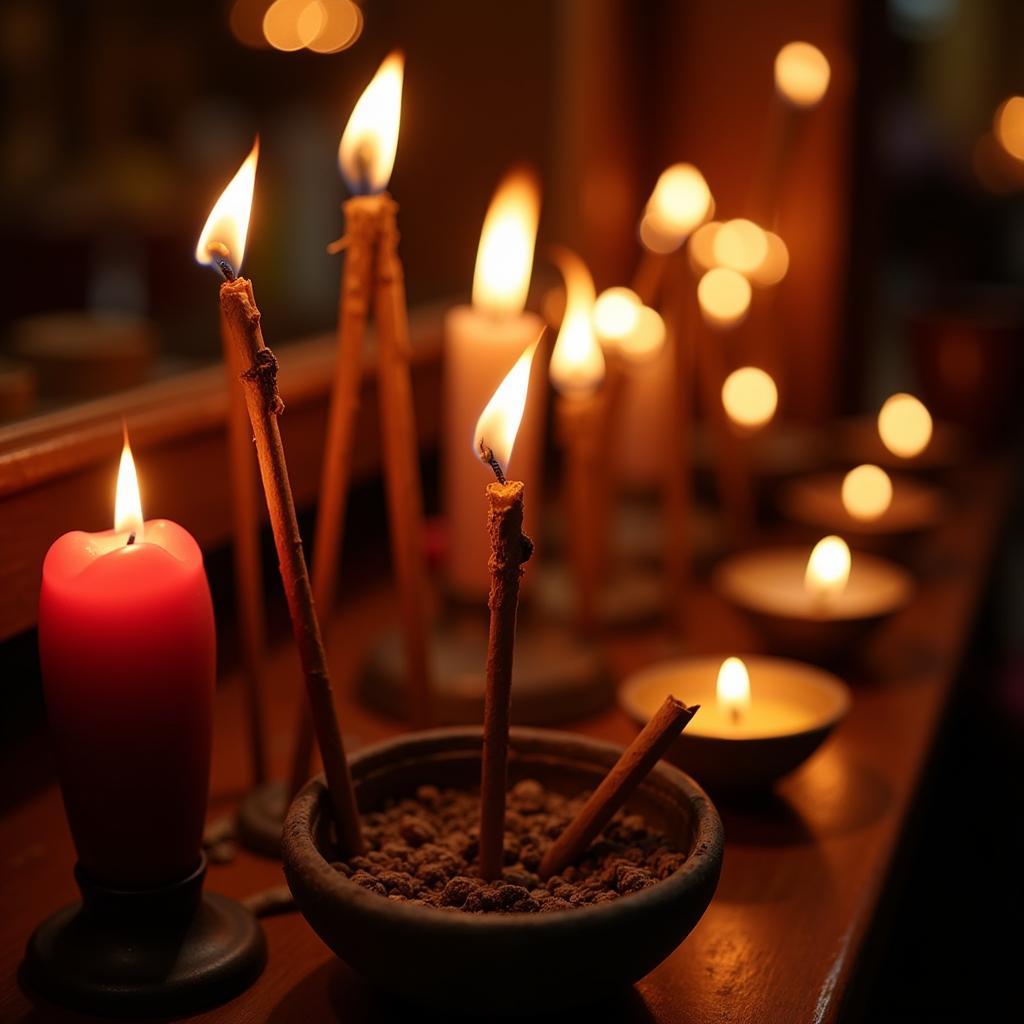 Incense Offering at a Hanoi Temple
Incense Offering at a Hanoi Temple
Finding Peace After “Cắt Tiền Duyên”
Cutting love ties is not a magic fix, but it can be a powerful step towards healing. It’s important to combine this spiritual practice with self-reflection and personal growth. Consider journaling, meditation, or seeking guidance from a counselor or spiritual advisor.
Conclusion: Embracing New Beginnings in Hanoi
Hanoi, with its blend of ancient spirituality and modern vibrancy, offers a unique backdrop for seeking closure and embracing new beginnings. By understanding the significance of “cắt tiền duyên” and finding the right spiritual sanctuary, you can embark on a journey of healing and open yourself to new possibilities.
FAQ:
- What is “cắt tiền duyên”? It’s a Vietnamese spiritual practice of severing karmic ties with past loves for emotional healing and new beginnings.
- Where can I perform “cắt tiền duyên” in Hanoi? Temples like Phủ Tây Hồ, Đền Quán Thánh, and Chùa Hương are popular choices.
- What does the process involve? Typically, it involves prayer, offerings, and sometimes burning symbolic items.
- Is it effective? While not a magic solution, it’s a powerful step towards healing when combined with self-reflection.
- Can I visit these temples as a tourist? Yes, these temples are open to visitors, but respecting the spiritual atmosphere is essential.
- What is the best time to visit these temples? Early mornings and weekdays are generally less crowded.
- Do I need a guide? While not mandatory, a local guide can enhance your understanding of the rituals and customs.
Need support? Contact us: Phone: 0372960696, Email: TRAVELCAR[email protected] or visit us at 260 Cầu Giấy, Hanoi. Our customer support team is available 24/7.
